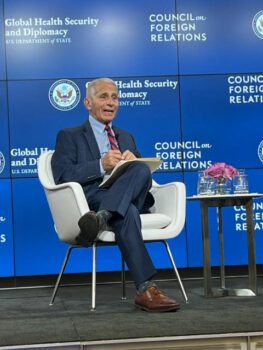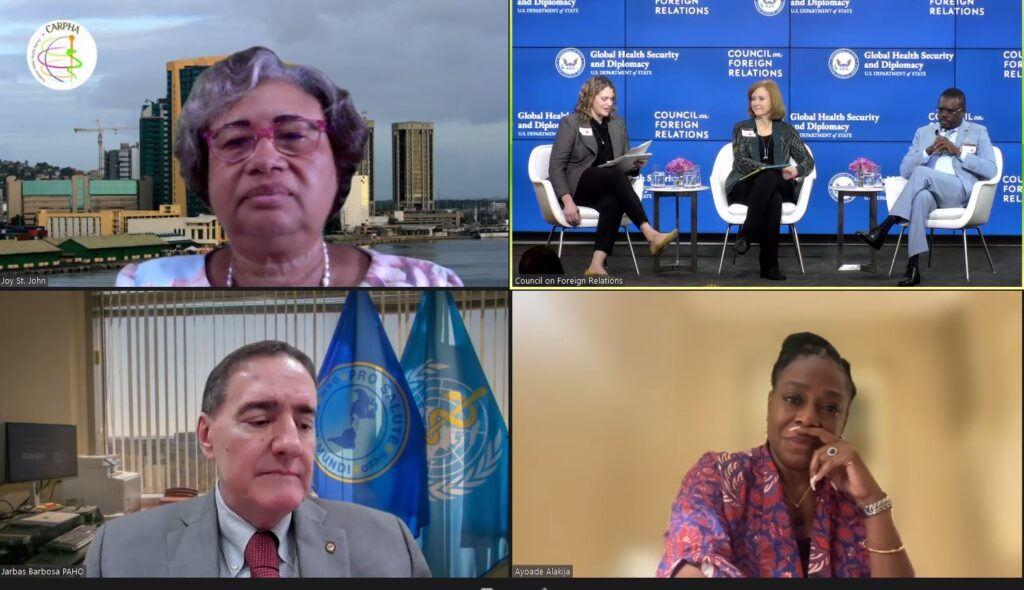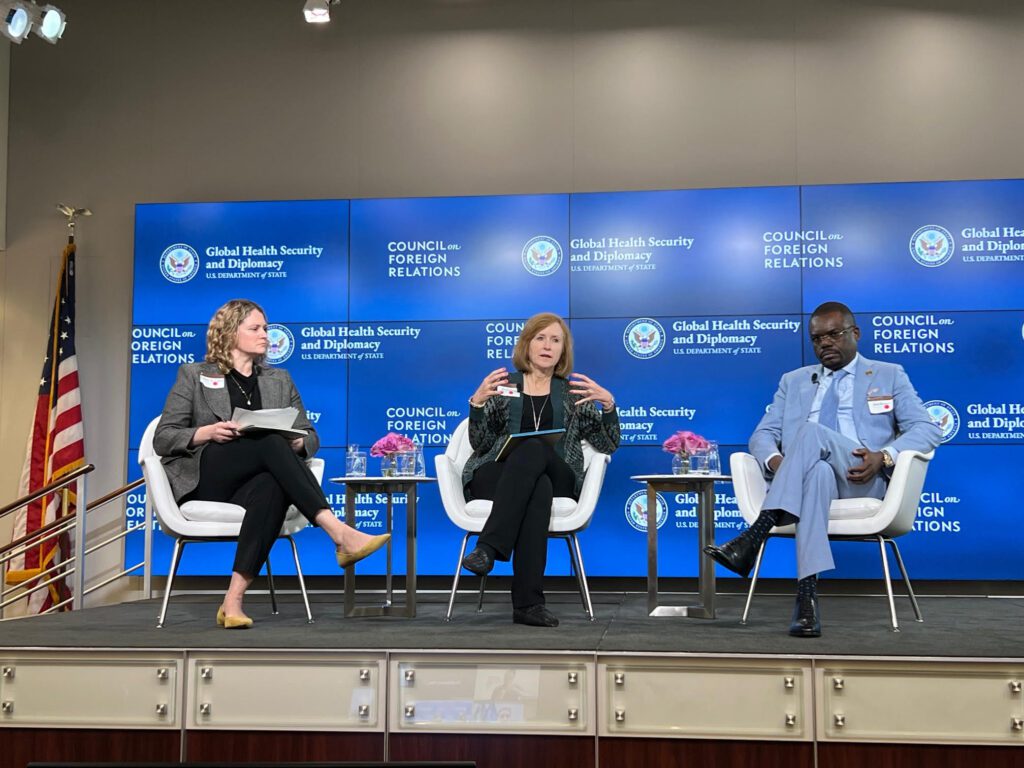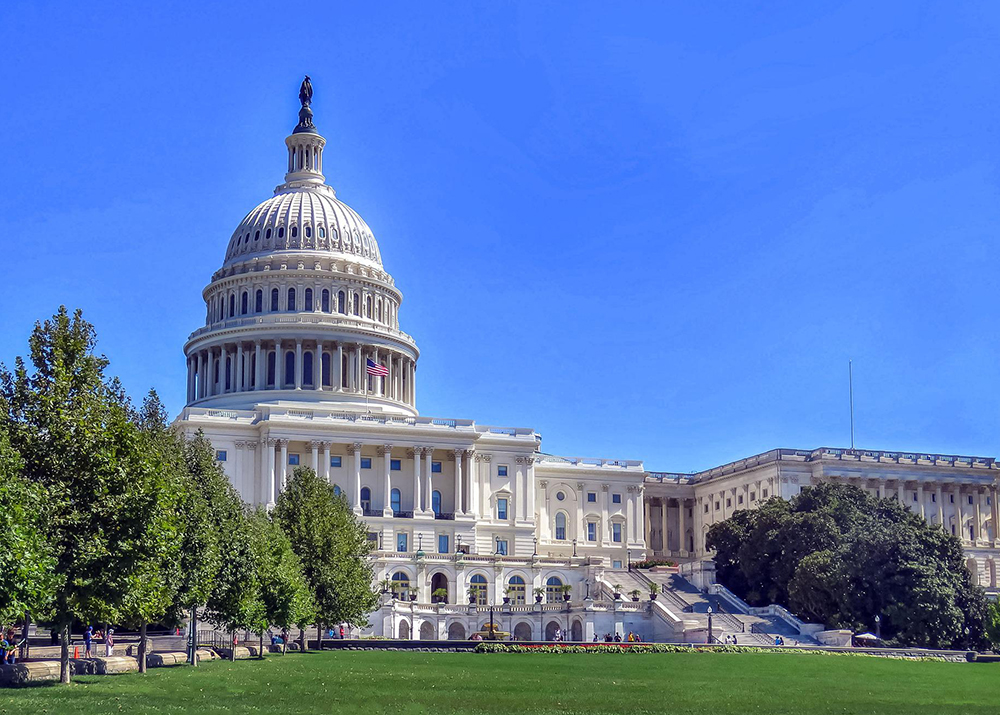COVID was “a tragedy around the world,” said Rachel King, President and CEO of the Biotechnology Innovation Organization (BIO). However, COVID-19 also brought “amazing accomplishments”—specifically, developing safe and effective vaccines so quickly—“together, because of partnerships.”
King spoke at a November 13 symposium, Global Health Security and Diplomacy in the Twenty-First Century, co-hosted by the Council on Foreign Relations and the recently launched Bureau of Global Health Security and Diplomacy at the U.S. Department of State.
“The fact that the world was able to come together as we did, to address it, is really remarkable,” continued King.
“The reason we were able to succeed was because of the partnerships.”
Moderated by Hillary H. Carter, Acting Principal Deputy Coordinator at the State Department’s Bureau of Global Health Security and Diplomacy, King joined several other global health leaders to reflect on the value of international cooperation and collaboration to enhance the strength of the global health architecture. Throughout the day, speakers at the Washington, D.C., event included U.S. Secretary of State Antony Blinken, U.S. Ambassador to the UN Linda Thomas-Greenfield, Director-General of the World Health Organization Tedros Adhanom Ghebreyesu, and former Chief Medical Adviser to the President, Dr. Anthony Fauci.
For global health security, we need local health security

Several speakers highlighted the importance of including regional, local, and community organizations and health authorities when designing public-private partnerships.
The Pan American Health Organization is a “concrete example of collaboration in partnership,” said the organization’s director, Jarbas Barbosa. Founded more than 120 years ago when countries came together to build the Panama Canal, the organization’s partnerships contributed to the elimination of polio and measles in the region and, more than a century later, a regional response to COVID-19.
“We know their needs, and we know how they function best to achieve these needs,” said Joy St. John, Executive Director of the Caribbean Public Health Agency (CARPHA), speaking about the organization’s partnerships with community groups. By working closely with CARICOM member states and community organizations, “CARPHA has both the 30-foot regional perspective as well as an understanding of the national needs which are best suited to partner interventions. We also understand partner perspectives because we’ve been trained and facilitated training for all states.”
Ayoade Alakija, Special Envoy for the Access to COVID-19 Tools Accelerator at the World Health Organization (WHO), joined virtually from “the remote islands of Indonesia,” where she spoke about building partnerships with community health workers and delivering technology like rapid tests for HIV and syphilis in small community clinics.
“There cannot be health security unless you have local security, unless we have country- and community-level security,” she said. “Unless one home is secure, your country, my country, my community cannot be secure.”

Lessons from the COVID-19 pandemic
Rachel King described three lessons learned from COVID-19 about the future of partnerships.
“One is enhancing investment in these platform technologies, both from governments and the private sector. And we don’t know where the solutions are going to come from,” said King. “We need to invest broadly in platform technologies in order to ensure that we have a robust capacity in the event that another pandemic occurs.”
“Another is strengthening regulatory regimes and ensuring harmonization—again, another area where we’ll require intense partnership and collaboration,” she continued. This includes strengthening supply chains and expanding regional manufacturing capabilities.
Partnerships during a pandemic are key. “We want to ensure that there’s unfettered access to a pathogen so that we can partner together with academic, regional, and industry collaborators to ensure that we get as quickly as possible to the vaccines and therapeutics needed to ensure good background of surveillance and good health systems are in place, so that we can effectively distribute the vaccines and therapies that are developed,” she explained.
And this “requires a strong IP regime so that we can ensure that the intellectual property is present in order to incentivize the investment that’s going to be required,” she concluded.
She explained more about how partnerships drove COVID-19 achievements:
The power of ‘together’
It’s about “respectful partnership,” said Jean Kaseya, Director-General of the Africa Centers for Disease Control and Prevention. Local manufacturing in Africa is critically important not only for the distribution of vaccines and diagnostics but also for “Africa manufacturing their own product. It’s not just for health security. It’s building our economies. It’s creating jobs.”
“As this world is faltering more and more, we need to start looking at unconventional partnerships,” said Alakija. “We need to start looking at that word, ‘together.’”
“The world needs to come together in such a way that it is respectful,” she continued, not just between but also within continents. “I am not okay if you are not okay. It’s about working together as a global community.”
At the same time, the right partnerships are key.
“Partnerships have been incredible in the last few years. I’ve seen them. I’ve seen the power of partnerships, and I’ve also seen how partnerships can dissolve when we try to restrain them too strongly within traditional limits or when we don’t have the right leadership and partnerships, and tried to force those partnerships into places that they don’t fit,” said Alakija.
“We need unconventional partnerships,” continued Alakija. “And we need, as [WHO Director-General] Dr. Tedros said, to do them together.”




